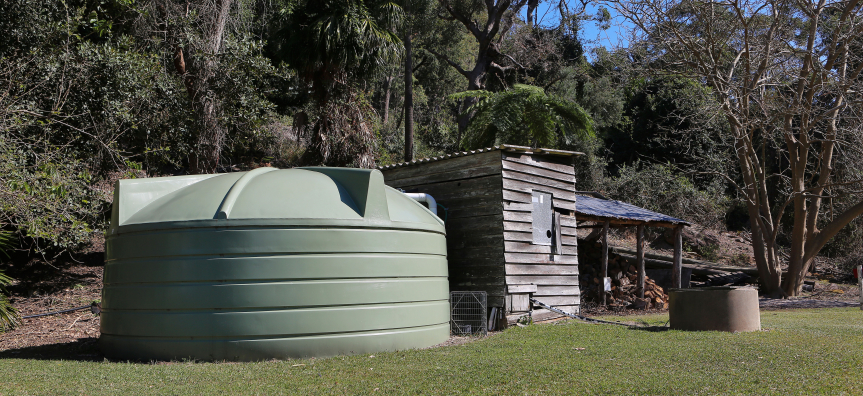
Water conservation
Small measures can make big improvements. Installing rainwater tanks and using bore water and recycled water for irrigating some of our sportsfields reduced our reliance on Sydney Water. A program of regular checking and reporting of leaky fittings and retrofitting Council facilities with water saving measures, has made an impact.
Water Sensitive Urban Design (WSUD)
Water Sensitive Urban Design (WSUD) addresses pollution and erosion issues, while also harnessing alternative water sources. ‘Catching’ unused rain water increases drought resilience. It also reduces urban temperatures, reliance on drinking water for activities like watering gardens and improves the health of our natural waterways.
WSUD incorporates rainwater tanks, stormwater harvesting, bioretention systems (rain gardens) that improve stormwater quality. Infiltration systems restore natural water movement. WSUD landscaping practices using porous paving and drought tolerant native species, create both attractive and functional landscapes.
watersensitivecities.org.au/water-sensitive-homes-and-buildings
CRC for Water Sensitive Cities
We have a long history as a founding partner of the Cooperative Research Centre (CRC) for Water Sensitive Cities. The CRC for Water Sensitive Cities brings together over 70 research, industry and government partners to investigate the best practices in water management. Together we are improving and protecting the health of urban waterways and wetlands, and mitigating against flood risk and damage. See more on Water Sensitive Cities.
Conserving water in our homes
Many Sydney households and businesses have reduced their water use over the last 20 years, but the population is growing and rainfall is declining. We still need to reduce water use by about 50 litres per person per day. This is achievable by making simple changes around our homes.
Try these water efficiency tips for households to help you save water and money and see Council's water efficiency page.
